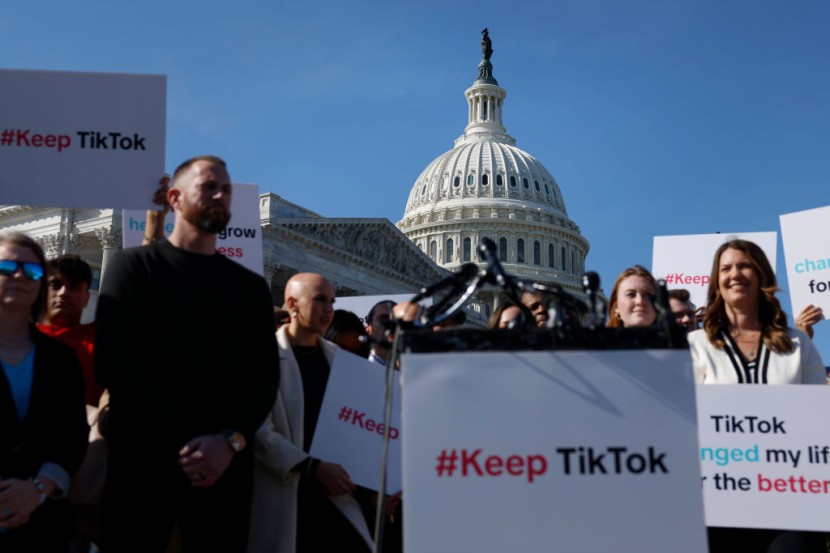
TikTok and its parent company ByteDance are suing the federal government, arguing that a ban recently signed into law by President Joe Biden is "obviously unconstitutional," in a lawsuit filed on Tuesday afternoon.
Biden's decision to sign the Protecting Americans from Foreign Adversary Controlled Applications Act (PAFACA) was met with bipartisan support in Congress, but fervently opposed by many younger Americans. Forty-six percent of adults under the age of 29 opposed a ban, while 29% supported it.
Under the current law, ByteDance has just 270 days from the law's enactment to sell the app - otherwise it will be banned in the United States.
"Banning TikTok is so obviously unconstitutional, in fact, that even the Act's sponsors recognized that reality, and therefore have tried mightily to depict the law not as a ban at all, but merely a regulation of TikTok's ownership," the company wrote in its lawsuit - before emphasizing that the ByteDance does not believe it has any real choice in the matter.
"The 'qualified divestiture' demanded by the Act to allow TikTok to continue operating in the United States is simply not possible: not commercially, not technologically, not legally. And certainly not on the 270-day timeline required by the Act."
Members of Congress advocated for the bill on the grounds that the Chinese-owned social media platform presented a significant data security risk to Americans. For many individuals, however, banning the app could lead to a loss of revenue or community.
"Almost every small business right now is on TikTok Shop," Massachusetts resident Michelle Silva told WBZ. Silva's clothing shop, Kali Rose Boutique, has grown from her garage to a 30,000 square foot warehouse - largely due to TikTok.
"[The ban is] very nerve-wracking, not just for myself. It would have a detrimental effect on not only myself, my family, all of my employees that are treated like family."
In their lawsuit, ByteDance and TikTok argue that the ban is unconstitutional on multiple grounds - pointing not just to the First Amendment but also the Fifth Amendment.
"Congress has never before crafted a two-tiered speech regime with one set of rules for one named platform, and another set of rules for everyone else," the lawsuit reads.
The lawsuit was filed in the Washington, D.C. circuit court - a frequent sparring ground for federal legal disputes. United States Attorney General Merrick Garland is named as the respondent.
© 2026 HNGN, All rights reserved. Do not reproduce without permission.








